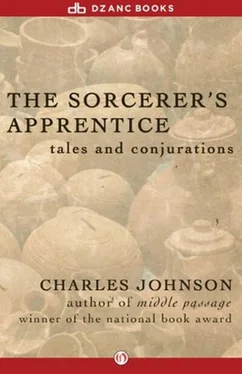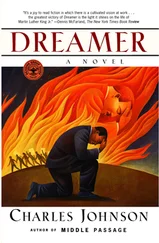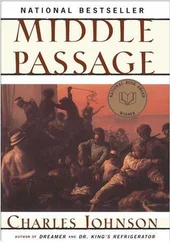Charles Johnson - Sorcerer's Apprentice
Здесь есть возможность читать онлайн «Charles Johnson - Sorcerer's Apprentice» весь текст электронной книги совершенно бесплатно (целиком полную версию без сокращений). В некоторых случаях можно слушать аудио, скачать через торрент в формате fb2 и присутствует краткое содержание. Год выпуска: 2014, Издательство: Dzanc Books, Жанр: Современная проза, на английском языке. Описание произведения, (предисловие) а так же отзывы посетителей доступны на портале библиотеки ЛибКат.
- Название:Sorcerer's Apprentice
- Автор:
- Издательство:Dzanc Books
- Жанр:
- Год:2014
- ISBN:нет данных
- Рейтинг книги:3 / 5. Голосов: 1
-
Избранное:Добавить в избранное
- Отзывы:
-
Ваша оценка:
- 60
- 1
- 2
- 3
- 4
- 5
Sorcerer's Apprentice: краткое содержание, описание и аннотация
Предлагаем к чтению аннотацию, описание, краткое содержание или предисловие (зависит от того, что написал сам автор книги «Sorcerer's Apprentice»). Если вы не нашли необходимую информацию о книге — напишите в комментариях, мы постараемся отыскать её.
Sorcerer's Apprentice — читать онлайн бесплатно полную книгу (весь текст) целиком
Ниже представлен текст книги, разбитый по страницам. Система сохранения места последней прочитанной страницы, позволяет с удобством читать онлайн бесплатно книгу «Sorcerer's Apprentice», без необходимости каждый раз заново искать на чём Вы остановились. Поставьте закладку, и сможете в любой момент перейти на страницу, на которой закончили чтение.
Интервал:
Закладка:
“You’re no Muhammad Ali.”
“I know that,” he said.
“You’re no Bruce Lee. Do you want to be Bruce Lee? Do you know where he is now, Rudolph? He’d dead — dead here in a Seattle cemetery and buried up on Capital Hill.”
His shoulders slumped a little. Silently, Rudolph began undressing, his beefy backside turned toward her, slipping his pa jama bottoms on before taking off his shirt so his scrawny lower body would not be fully exposed. He picked up his magazine, said, “I’m sorry if I worried you,” and huffed upstairs to his bedroom. Evelyn clicked off the mushroom-shaped lamp on her nightstand. She lay on her side, listening to his slow footsteps strike the stairs, then heard his mattress creak above her — his bedroom was directly above hers — but she did not hear him click off his own light. From time to time she heard his shifting weight squeak the mattress springs. He was reading that foolish magazine, she guessed; then she grew tired and gave this impossible man up to God. With a copy of The Thorn Birds open on her lap, Evelyn fell heavily to sleep again.
At breakfast the next morning any mention of the lessons gave Rudolph lockjaw. He kissed her forehead, as always, before going to work, and simply said he might be home late. Climbing the stairs to his bedroom was painful for Evelyn, but she hauled herself up, pausing at each step to huff, then sat on his bed and looked over his copy of Inside Kung-Fu . There were articles on empty-hand combat, soft-focus photos of ferocious-looking men in funny suits, parables about legendary Zen masters, an interview with someone named Bernie Bernheim, who began to study karate at age fifty-seven and became a black belt at age sixty-one, and page after page of advertisements for exotic Asian weapons: nunchaku, shuriken, sai swords, tonfa, bo staffs, training bags of all sorts, a wooden dummy shaped like a man and called a Mook Jong, and weights. Rudolph had circled them all. He had torn the order form from the last page of the magazine. The total cost of the things he’d circled — Evelyn added them furiously, rounding off the figures — was $800.
Two minutes later she was on the telephone to Shelberdine.
“Let him tire of it,” said her friend. “Didn’t you tell me Rudolph had Lower Lombard Strain?”
Evelyn’s nose clogged with tears.
“Why is he doing this? Is it me, do you think?”
“It’s the Problem,” said Shelberdine. “He wants his manhood back. Before he died, Arthur did the same. Someone at the plant told him he could get it back if he did twenty-yard sprints. He went into convulsions while running around the lake.”
Evelyn felt something turn in her chest. “You don’t think he’ll hurt himself, do you?”
“Of course not.”
“Do you think he’ll hurt me?”
Her friend reassured Evelyn that Mid-Life Crisis brought out these shenanigans in men. Evelyn replied that she thought Mid-Life Crisis started around age forty, to which Shelberdine said, “Honey, I don’t mean no harm, but Rudolph always was a little on the slow side,” and Evelyn agreed. She would wait until he worked this thing out of his system, until Nature defeated him and he surrendered, as any right-thinking person would, to the breakdown of the body, the brutal fact of decay, which could only be blunted, it seemed to her, by decaying with someone, the comfort every Negro couple felt when, aging, they knew enough to let things wind down.
Her patience was rewarded in the beginning. Rudolph crawled home from his first lesson, hunched over, hardly able to stand, afraid he had permanently ruptured something. He collapsed face down on the living room sofa, his feet on the floor. She helped him change into his pajamas and fingered Ben-Gay into his back muscles. Evelyn had never seen her husband so close to tears.
“I can’t do push-ups,” he moaned. “Or situps. I’m so stiff — I don’t know my body.” He lifted his head, looking up pitifully, his eyes pleading. “Call Dr. Guylee. Make an appointment for Thursday, okay?”
“Yes, dear.” Evelyn hid her smile with one hand. “You shouldn’t push yourself so hard.”
At that, he sat up, bare-chested, his stomach bubbling over his pa jama bottoms. “That’s what it means. Gung-fu means ‘hard work’ in Chinese. Evelyn”—he lowered his voice—“I don’t think I’ve ever really done hard work in my life. Not like this, something that asks me to give everything , body and soul, spirit and flesh. I’ve always felt…” He looked down, his dark hands dangling between his thighs. “I’ve never been able to give everything to anything. The world never let me. It won’t let me put all of myself into play. Do you know what I’m saying? Every job I’ve ever had, everything I’ve ever done, it only demanded part of me. It was like there was so much more of me that went unused after the job was over. I get that feeling in church sometimes.” He lay back down, talking now into the sofa cushion. “Sometimes I get that feeling with you.”
Her hand stopped on his shoulder. She wasn’t sure she’d heard him right, his voice was so muffled. “That I’ve never used all of you?”
Rudolph nodded, rubbing his right knuckle where, at the kwoon, he’d lost a stretch of skin on a speedbag. “There’s still part of me left over. You never tried to touch all of me, to take everything. Maybe you can’t. Maybe no one can. But sometimes I get the feeling that the unused part — the unlived life— spoils , that you get cancer because it sits like fruit on the ground and rots.” Rudolph shook his head; he’d said too much and knew it, perhaps had not even put it the way he felt inside. Stiffly, he got to his feet. “Don’t ask me to stop training.” His eyebrows spread inward. “If I stop, I’ll die.”
Evelyn twisted the cap back onto the Ben-Gay. She held out her hand, which Rudolph took. Veins on the back of his hand burgeoned abnormally like dough. Once when she was shopping at the Public Market she’d seen monstrous plastic gloves shaped like hands in a magic store window. His hand looked like that. It belonged on Lon Chaney. Her voice shook a little, panicky, “I’ll call Dr. Guylee in the morning.”
Evelyn knew — or thought she knew — his trouble. He’d never come to terms with the disagree-ableness of things. Rudolph had always been too serious for some people, even in South Carolina. It was the thing, strange to say, that drew her to him, this crimped-browed tendency in Rudolph to listen with every atom of his life when their minister in Hodges, quoting Marcus Aurelius to give his sermon flash, said, “Live with the gods,” or later in Seattle, the habit of working himself up over Reverend Merrill’s reading from Ecclesiastes 9:10: “Whatsoever thy hand findeth to do, do it with all thy might.” Now, he didn’t really mean that, Evelyn knew. Nothing in the world could be taken that seriously; that’s why this was the world. And, as all Mount Zion knew, Reverend Merrill had a weakness for high-yellow choir-girls and gin, and was forever complaining that his salary was too small for his family. People made compromises, nodded at spiritual commonplaces — the high seriousness of biblical verses that demanded nearly superhuman duty and self-denial — and laughed off their lapses into sloth, envy, and the other deadly sins. It was what made living so enjoyably human: this built-in inability of man to square his performance with perfection. People were naturally soft on themselves. But not her Rudolph.
Of course, he seldom complained. It was not in his nature to complain when, looking for “gods,” he found only ruin and wreckage. What did he expect? Evelyn wondered. Man was evil — she’d told him that a thousand times — or, if not evil, hopelessly flawed. Everything failed; it was some sort of law. But at least there was laughter, and lovers clinging to one another against the cliff; there were novels — wonderful tales of how things should be — and perfection promised in the afterworld. He’d sit and listen, her Rudolph, when she put things this way, nodding because he knew that in his persistent hunger for perfection in the here and now he was, at best, in the minority. He kept his dissatisfaction to himself, but occasionally Evelyn would glimpse in his eyes that look, that distant, pained expression that asked: Is this all? She saw it after her first miscarriage, then her second; saw it when he stopped searching the want ads and settled on the Post Office as the fulfillment of his potential in the marketplace. It was always there, that look, after he turned forty, and no new, lavishly praised novel from the Book-of-the-Month Club, no feature-length movie, prayer meeting, or meal she fixed for him wiped it from Rudolph’s eyes. He was, at least, this sort of man before he saw that martial-arts B movie. It was a dark vision, Evelyn decided, a dangerous vision, and in it she whiffed something that might destroy her. What that was, she couldn’t say, but she knew her Rudolph better than he knew himself. He would see the error — the waste of time — in his new hobby, and she was sure he would mend his ways.
Читать дальшеИнтервал:
Закладка:
Похожие книги на «Sorcerer's Apprentice»
Представляем Вашему вниманию похожие книги на «Sorcerer's Apprentice» списком для выбора. Мы отобрали схожую по названию и смыслу литературу в надежде предоставить читателям больше вариантов отыскать новые, интересные, ещё непрочитанные произведения.
Обсуждение, отзывы о книге «Sorcerer's Apprentice» и просто собственные мнения читателей. Оставьте ваши комментарии, напишите, что Вы думаете о произведении, его смысле или главных героях. Укажите что конкретно понравилось, а что нет, и почему Вы так считаете.












